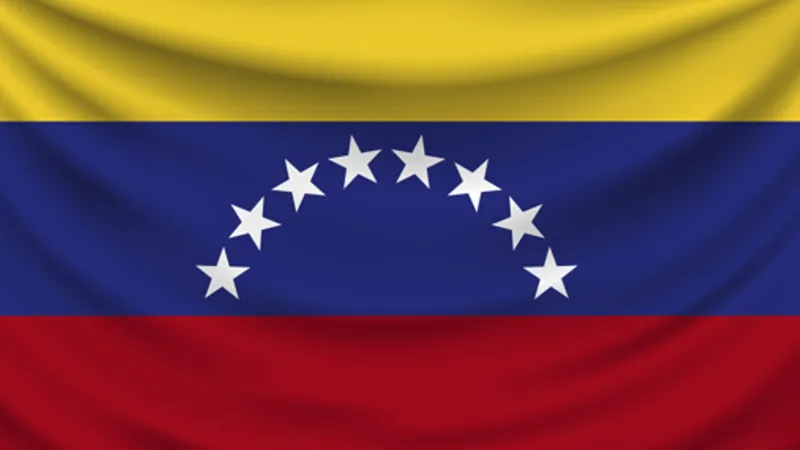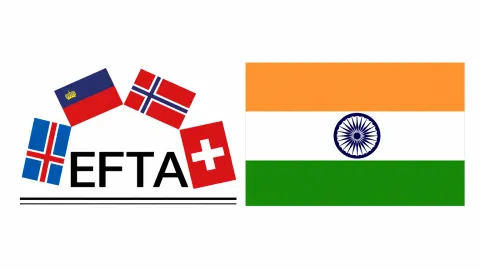Passport Control: New Developments on the Investment Protection Rights of Dual Nationals
September 5, 2025
During the last decade, there has been significant debate about whether investors holding the nationality of the host State may bring an investment treaty claim invoking the nationality of another State. Within the ICSID framework, the question is largely settled: Article 25.2(a) of the ICSID Convention expressly precludes dual nationals, where one nationality is that of the host State, from submitting claims. Outside the ICSID context, however, the issue remains contentious, as divergent outcomes continue to emerge. A decision issued under the 1995 Spain-Venezuela Bilateral Investment Treaty (the “Treaty”) recently shed light on the topic (see an English translation of the Treaty here).
On May 27, 2025, an UNCITRAL tribunal in Diamante Trading Ltd. et al v. Venezuela (PCA Case 2019-49), composed of Professor Diego P. Fernández Arroyo (chair), Joseph Tirado (appointed by the claimants), and Professor Franco Ferrari (appointed by Venezuela), held that a group of claimants holding both the Spanish and Venezuelan nationalities had standing to bring an expropriation claim and ordered Venezuela to pay a compensation of over US$165 million (see Award here).
The decision comes on the heels of a series of rulings on dual nationals, including several applying the same Treaty. The Tribunal conducted a thorough analysis of key aspects of the situation of dual nationals, while noting the existence of conflicting precedents. In deciding that dual nationals had standing, the Tribunal followed the decision in Serafín García Armas v. Venezuela, which also admitted claims by dual nationals under the same Treaty (S. García Armas et al v. Venezuela, PCA Case No. 2013-3, Decision on Jurisdiction, December 15, 2014).
This article analyzes the interpretative methodology employed by the Tribunal in reaching its conclusion.
Background of the Case
Six of the claimants were members of the Herrera family, who had an array of businesses in Venezuela, including food distribution, transportation, and real estate. These enterprises were affected by measures enacted by Venezuelan authorities amid acute shortages of essential goods and alleged market distortions. According to the claimants, their businesses were subjected to temporary occupation, inventory seizures, and subsequent administrative proceedings. They contended that these actions were unlawful and resulted in the destruction of their investments.
Five of the six family members held dual Venezuelan and Spanish nationality at the time the measures were imposed and at the initiation of arbitration.
While co-arbitrator Ferrari dissented with respect to the jurisdiction ratione materiae (an issue exceeding the scope of this article), the decision on jurisdiction ratione personae was unanimous; subject to his dissent, he also agreed with the decision on the merits and quantum. In finding an illegal expropriation, the Tribunal noted, inter alia, that the “temporary occupation” of claimants’ companies had prolonged for a decade, thereby becoming effectively permanent (Award, ¶ 481 et seq).
The Interpretation Method Followed by the Tribunal
Since the Treaty does not expressly refer to the situation of dual nationals (like most ‘old generation’ investment treaties), the discussion hinged around whether such silence was qualified, and whether it entailed an admission or a prohibition of dual nationals.
It was undisputed that the Tribunal had to interpret the Treaty in accordance with Articles 31 and 32 of the Vienna Convention on the Law of Treaties (the “VCLT”). As noted by the Tribunal, Article 31 of the VCLT establishes a single, integrated rule of interpretation—applicable as a whole—rather than a series of rules triggered under different circumstances (Award, ¶ 224). The norm mandates that a treaty be interpreted “in good faith [i] in accordance with the ordinary meaning to be given to the terms of the treaty [ii] in their context and in the light of its object and purpose”.
The Tribunal further emphasized that Article 32 of the VCLT operates solely as a supplementary means of interpretation, available only after the process under Article 31 has been exhausted. Through this clarification, the Tribunal outlined how these rules should operate, a pivotal feature sometimes misapplied in practice.
On this basis, the Tribunal conducted a step-by-step analysis.
A. First Step: The Ordinary Meaning of the Definition of “Investor”
Article I.1(a) of the Treaty contains the following definition: “The term ‘investor’ means: (a) Any physical person who possesses the nationality of one Contracting Party pursuant to its legislation and makes investments in the territory of the other Contracting Party”.
The Tribunal considered that a literal interpretation of this text did not attach any relevance to whether the claimant holds additional nationalities to the one invoked for the purpose of a claim. The Tribunal noted that the norm only contains two requirements: (i) to hold the nationality of one of the contracting States; and (ii) to make an investment in the territory of the other State, both of which are formulated in a positive manner (such that the focus is on the required criteria, rather than on disqualifying attributes) (Award, ¶ 227).
Analyzing two bilateral investment treaties (“BIT”) with similar definitions of “investor”, the tribunal in Bahgat v. Egypt explained that “[t]he plain text of the BITs only imposes the positive requirement that an individual claimant be a national of the other contracting party, not the negative requirement that the individual claimant is also not a national of the host state” (M. Bahgat v. Egypt, PCA Case No. 2012-07, Decision on Jurisdiction, November 30, 2017, ¶ 222; see also V. Pey Casado et al v. Chile, ICSID Case No. ARB/98/2, Award, May 8, 2008, ¶ 415; J. Oostergetel et al v. Slovakia, UNCITRAL, Decision on Jurisdiction, April 30, 2010, ¶ 130). Similarly, the tribunal in Rawat v. Mauricio explained that “[when] [t]here is no express exclusion of dual nationals […] [t]his would seem to point to the[ir] inclusion, rather than the[ir] exclusion” (D. Rawat v. Mauritius, PCA Case No. 2016-20, Award on Jurisdiction, April 6, 2018, ¶ 170). The Rawat tribunal then rejected jurisdiction for other reasons (see further below).
Venezuela alleged that the phrase “who possesses the nationality of one Contracting Party” (in singular) meant that an investor may only have one nationality. The Tribunal rejected this interpretation. The Tribunal explained that the juxtaposition of the phrases “the nationality of one Contracting Party” and “the territory of the other Contracting Party” made it evident that the term “one” cannot refer to the number of nationalities allowed. Instead, this term serves a determinative function, rather than denoting numerical limitation; otherwise, the phrase “the other” would lose coherence (Award, ¶ 228). Replacing the term “one” with another number would render the phrase meaningless. Therefore, this text can only mean that the country whose nationality is invoked must be different from the host State.
The Tribunal, thus, distinguished itself from other tribunals that, analyzing the same Treaty, considered that there was a lacuna that required importing elements of international law, which are not mentioned in the Treaty (the Fraiz, Manuel García Armas, and Santamarta cases, all against Venezuela). The Tribunal considered this impermissible, as the VCLT requires that the analysis begin with a straightforward literal interpretation (Award, ¶¶ 230-234).
For these reasons, as the first step of its analysis, the Tribunal concluded that the plain text of the Treaty did not exclude dual nationals.
B. Second Step: The Context, Object, and Purpose of the Treaty
The Tribunal underscored that the literal interpretation of the Treaty was only the starting point of the analysis, and it therefore continued reviewing the context, object, and purpose of the Treaty, under Article 31 of the VCLT (Award, ¶¶ 236-237). On this front, Venezuela raised two arguments.
First, Venezuela raised an argument anchored in the dispute resolution clause of the Treaty. Article XI of the Treaty states that an investor may bring a claim against the host State: (i) in the courts of the host State; or (ii) before an ICSID tribunal (or an ICSID Additional Facility tribunal, if either State has not adhered to the ICSID Convention); and (iii) before an UNCITRAL tribunal, if, for any reason, ICSID (or the Additional Facility) is not available (see full text here).
Venezuela alleged that this provision sets a hierarchy of available fora, such that ICSID arbitration is the main one, and UNCITRAL is only residual. On that basis, Venezuela maintained that for a claimant to have standing under the Treaty, it must be able to access the ICSID system in the first place. Since dual nationals have no access to ICSID arbitration, this would exclude them from the Treaty altogether (Award, ¶ 241). This position was accepted in Manuel García Armas, but rejected in Fraiz and Santamarta (M. García Armas et al v. Venezuela, PCA Case No. 2016-08, Award on Jurisdiction, December 13, 2019, ¶ 721; F. Fraiz Trapote v. Venezuela, PCA Case No. 2019-11, Final Award, January 31, 2022, ¶ 319; R. Santamarta Devis v. Venezuela, PCA Case No. 2020-56, Award on Ratione Personae Jurisdiction, July 26, 2023, ¶ 400).
The Tribunal rejected this argument, highlighting that the provision expressly makes UNCITRAL arbitration available “if for any reason [ICSID arbitration is] not available”, thus establishing a broad default rule (Award, ¶ 242). The language of this provision leaves little room for doubt, especially considering that dual nationality is one of the main reasons why ICSID may not be available. It is unlikely that sophisticated treaty negotiators could have overlooked this possibility.
Notably, Schreuer’s Commentary explains that “[while] the dual national would be disqualified from invoking the ICSID clause in the BIT […] [i]f an investor possesses the nationalities of both States parties to a BIT, he or she may enjoy the benefits of the BIT for other purposes” (Schreuer’s Commentary on the ICSID Convention, CUP, 3rd Ed., 2022, § 1150).
Furthermore, Venezuela’s argument cannot be reconciled with the fact that the Treaty also permits litigation before the domestic courts of the host State, where there is no barrier to claims by dual nationals. While in practice, arbitration is preferable over the domestic courts, nothing in the Treaty elevates arbitration as the main option. For this provision to have effet utile, one should consider a possible scenario of domestic litigation.
The Tribunal highlighted that the situation might be different under treaties where ICSID is the only available forum (Award, ¶ 244). This was the case, for instance, in Rawat v. Mauricio, under the France-Mauritius BIT. While the tribunal in that case rejected jurisdiction based on dual nationality, it noted that the conclusion might be different if the applicable treaty offered another available forum (like the Treaty), which the France-Mauritius BIT did not (D. Rawat v. Mauritius, PCA Case No. 2016-20, Award on Jurisdiction, April 6, 2018, fn 150).
Second, Venezuela maintained that the protection of dual nationals would be inconsistent with certain portions of the Treaty preamble, like its reference to promote “investments made by investors of either Contracting Party in the territory of the other Party”. However, the Tribunal found no relevant connection between this objective, on the one hand, and protecting (or not protecting) dual nationals, on the other (Award, ¶¶ 245-246).
Some may even argue that the investment potential is greater when expanding the scope of protection to a broader universe of investors. In this regard, Professor Douglas explains that automatically excluding the protection of dual nationals “would hardly serve the treaty’s purpose of encouraging foreign investment because an entire class of potential investors would be denied the opportunity to rely upon the investment protections of the treaty” (Z. Douglas, The International Law of Investment Claims (CUP 2009), p. 321). This consideration is critical in the context of the ample migration of Spaniards to Venezuela. The tribunal in Khalil v. Senegal took a similar view when considering the historical relationship between France and Senegal, before admitting a claim by a French Senegalese national (see I. A. Khalil v. Senegal, Paris Court of Appeals, Judgement of October 12, 2021, ¶¶ 33-34).
Based on these reasons, as the second step of its analysis, the Tribunal concluded that the object and purpose of the Treaty did not prohibit claims by dual nationals.
C. Third Step: Further Elements of Interpretation (Special International Law Principles)
The Tribunal noted that, under Article 31.3(c) of the VCLT, it was obliged to consider “any relevant rules of international law applicable in the relations between the parties.” Venezuela had invoked the principles of (i) non-responsibility; and (ii) dominant and effective nationality (Award, ¶¶ 248-249).
The principle of non-responsibility, embodied in Article 4 of The Hague Convention on Certain Questions relating to the Conflict of Nationality Laws (“The Hague Convention”), provides that "[a] State may not afford diplomatic protection to one of its nationals against a State whose nationality such person also possesses." In turn, the principle of dominant and effective nationality, as developed by the International Court of Justice (the “ICJ”) in the Nottebohm case, only permits a person to seek the diplomatic protection from a State, so long as their dominant and effective nationality lies with said State (ICJ, Liechtenstein v. Guatemala, Judgement of April 6, 1995). While the former seems to have lost support, the latter was the key to rejecting jurisdiction in Fraiz and Santamarta (F. Fraiz Trapote v. Venezuela, PCA Case No. 2019-11, Final Award, January 31, 2022, ¶ 397; R. Santamarta Devis v. Venezuela, PCA Case No. 2020-56, Award on Ratione Personae Jurisdiction, July 26, 2023, ¶ 485). In Diamante Trading, however, the Tribunal concluded that neither principle was applicable.
The Tribunal noted that the Treaty provides a definition of “investor”, which, under article 31.4 of the VCLT, deserves a “special meaning”, and therefore impedes resorting to general rules of international law (Award, ¶¶ 251-252). Notably, Article 19 of The Hague Convention states that “[n]othing in the present Convention shall affect the provisions of any treaty, convention or agreement in force between any of the High Contracting Parties relating to nationality or matters connected therewith”. It follows that the Convention has no bearing on investment treaties.
Thus, the Tribunal followed the decision in Serafín García Armas v. Venezuela, which held that an investment treaty constitutes a lex specialis, which prevails over general principles of international law (Award, ¶ 254). Many other tribunals have acknowledged the lex specialis nature of investment law in other contexts, and there is no reason to reach a different conclusion when it comes to dual nationals (S. García Armas et al v. Venezuela, PCA Case No. 2013-3, Decision on Jurisdiction, December 15, 2014).
The Tribunal added that the principles of “non-responsibility” and of “dominant and effective nationality” have evolved through time, such that their existence, scope, and applicability are not evident. In this regard, the Tribunal agreed with the decision in Bahgat v. Egypt, stating that the Hague Convention alone (which was only ratified by 20 States and has been superseded by the developments in the field of diplomatic protection and human rights) was insufficient to confirm the existence and applicability of said principles. Instead, said principles have faded in modern times (Award, ¶¶ 256-257). The tribunal in Bahgat explained that “[it] cannot discern from relevant jurisprudence any clear, applicable general principle of international law that would prohibit a dual national in his or her private capacity from bringing a claim against a State of his or her nationality” and, in any event, “any developments in international law must yield to the lex specialis of the investment treaty” (M. Bahgat v. Egypt, PCA Case No. 2012-07, Decision on Jurisdiction, November 30, 2017, ¶¶ 230-231).
Other tribunals have also rejected the concept of effective nationality in other contexts (Saba Fakes v. Turkey, ICSID Case No. ARB/07/20, Award, July 14, 2010, ¶ 64, citing I. Micula v. Romania, ICSID Case No. ARB/05/20, Decision on Jurisdiction and Admissibility, September 24, 2008). In reaching a similar conclusion (discussing the need of a “genuine link”), the tribunal in ADC noted that one “cannot read more into the BIT than one can discern from its plain text” (ADC Affiliate Limited et al v. Hungary, ICSID Case No. ARB/03/16, Award, October 2, 2006, ¶ 359).
Notably, most tribunals that relied on the principles of diplomatic protection against dual nationals have failed to address the distinction between the two regimes. The principles of diplomatic protection address the question of whether a State can deploy diplomatic means to protect its citizens against the conduct of other States, a question that is not at issue in investor-State cases. In the Diallo case, the ICJ highlighted the separation between the two regimes (ICJ, A Diallo, Guinea v. Congo, Judgment – Preliminary Objections, May 24, 2007, ¶¶ 88, 90). For instance, investment tribunals have rejected the application of the ICJ holding in Barcelona Traction (on diplomatic protection and indirect claims by shareholders) and have ignored the exhaustion of local remedies (which is necessary for diplomatic protection) when not required by the applicable investment treaty.
In this vein, Article 17 of the UN Draft Articles on Diplomatic Protection states that they “do not apply to the extent that they are inconsistent with special rules of international law, such as treaty provisions for the protection of investments”. The Commentary to the Draft Articles explains that investment treaties “contain special rules on the settlement of disputes which exclude or depart substantially from the rules governing diplomatic protection. Such treaties abandon or relax the conditions relating to the exercise of diplomatic protection, particularly the rules relating to the nationality of claims”.
Nothing prevents States, however, from qualifying the definition of “investor” based on the principle of dominant and effective nationality. For instance, the US-Colombia BIT indicates that “a natural person who is a dual citizen shall be deemed to be exclusively a citizen of the State of his or her dominant and effective nationality” (Article 12.20). This led the tribunal in Carrizosa to reject jurisdiction (A. Carrizosa et al v. Colombia, PCA Case No. 2018-56, Award, 7 May 2021, ¶ 181). The Dominican Republic-Central America Free Trade Agreement (DR-CAFTA) is another example of this (Article 10.28), and led the tribunal in Ballantine to also dismiss jurisdiction (M. Ballantine et al v. The Dominican Republic, PCA Case No. 2016-17, Final Award, September 3, 2019).
Separately, the Tribunal in Diamante noted that, where the parties to a treaty share a specific interpretation of its terms, one could not ignore their common understanding (Award, ¶ 247). An example of this is Alicia Grace v. Mexico, where the tribunal found that NAFTA protected dual nationals provided that their dominant and effective nationality differed from that of the respondent State. The tribunal drew this conclusion from the concurring statements submitted by the US and Canada (aligned with Mexico’s position), which it understood as “subsequent practice for the purposes of Article 31(3)(b) of the VCLT”. Ultimately, the tribunal found that the dominant and effective nationality of some of the claimants was that of Mexico and rejected jurisdiction (Alicia Grace et al v. Mexico, ICSID Case No. UNCT/18/4, Final Award, ¶¶ 471-475, 490, 499).
Based on the reasons above, as the third step of its analysis, the Tribunal concluded that the principles of diplomatic protection had no bearing on the protection of dual nationals under the Treaty.
D. Fourth Step: Supplementary Means of Interpretation (Travaux Préparatoires)
While its interpretation of the Treaty under Article 31 of the VCLT was sufficient to uphold jurisdiction, the Tribunal resorted to supplementary means of interpretation to confirm such a decision. The Tribunal found that the travaux préparatoires of the Treaty and the circumstances of its conclusion confirmed that dual nationals enjoyed protection.
First, the Tribunal was presented with the meeting minutes from the negotiations between Spain and Venezuela. These minutes included detailed notes on the topics discussed in relation to a preliminary draft of the Treaty. Importantly, the Tribunal noted that other tribunals applying the same Treaty did not analyze this evidence (see, e.g. M. García Armas et al v. Venezuela, PCA Case No. 2016-08, Award on Jurisdiction, December 13, 2019, ¶¶ 382-383; F. Fraiz Trapote v. Venezuela, PCA Case No. 2019-11, Final Award, January 31, 2022, fns 279-280).
These notes showed that Spain and Venezuela had discussed the situation of dual nationals. In fact, at the same time, Venezuela was also discussing with Italy the possibility of excluding dual nationals in a separate treaty, a solution which was ultimately adopted in the Italy-Venezuela BIT of 1990 (see Protocol to the Italy-Venezuela BIT, Article 1(a)) (Award, ¶¶ 262-263). The Tribunal noted that this circumstance was especially relevant considering that, at that time, approximately 300,000 Spaniards resided in Venezuela, which could not have been overlooked by the contracting States (Award, ¶ 264).
Second, it is considered that the supplementary means of interpretation under Article 32 of the VCLT “include treaties which one of the Contracting States entered into with third States if they deal with the same subject matter” (KT Asia Investment Group B.V. v. Kazakhstan, ICSID Caso No. ARB/09/8, Award, October 17, 2013, ¶¶ 122-123). Therefore, the Tribunal noted that both States had expressly excluded the protection of dual nationals in other investment treaties: (i) Venezuela had done so with Italy, Canada, Iran, and Colombia, whereas (ii) Spain had done so with Colombia and Uruguay (Award, ¶ 266). Similarly, the tribunal in Pugachev v. Russia held that the fact that France and Russia had excluded dual nationals in other treaties showed that “if [they] had intended to exclude dual nationals from the scope of the France-USSR BIT, they would have done so expressly” (S. Pugachev v. Russia, UNCITRAL Case, Award on Jurisdiction, June 18, 2020, ¶¶ 385-386).
Sovereign States are sophisticated treaty negotiators. Many States have shown that, when they desire not to protect dual nationals, they do it expressly (see, for instance, Slovak Republic– Iran BIT, article 1.3). The ICSID Convention is another example that the issue of dual nationals was considered by the States and, when there was consensus to exclude them, the best practice was to do so expressly.
In sum, as a fourth step of its analysis, the Tribunal concluded that the preparatory work of the Treaty confirmed that Spain and Venezuela did not intend to deny protection to dual nationals.
Concluding Remarks
The decision in Diamante Trading underscores the ongoing tension within investment law concerning the protection of dual nationals. This tension is exacerbated by tribunals often adopting diverging approaches to the interpretative framework of the VCLT.
The analysis followed by this Tribunal, in accordance with the VCLT, may provide valuable guidance to future tribunals facing similar questions. When drawing on this decision, tribunals must begin their interpretative exercise in good faith, considering the literal interpretation of the treaty’s text, while accounting for its object and purpose, all as a single integrated rule. Then, care must be taken to avoid relying on supplementary means of interpretation as a pretext to read more (or less) into the treaty than one can discern from its plain text. Finally, tribunals must carefully distinguish between diplomatic protection principles and those arising under the investment law framework. This is also a rare and interesting precedent of the evidentiary value of the travaux préparatoires in aid of treaty interpretation.
While arbitral precedents are not binding, the decision in Diamante Trading carries persuasive authority (particularly regarding the Spain-Venezuela BIT), which may clarify the position of dual nationals. Hopefully, the case law will continue to evolve towards a more harmonized interpretation, thereby providing greater legal certainty for both investors and States.
The authors are grateful for the valuable assistance of Emanuel Retana in the preparation of this article.
You may also like











